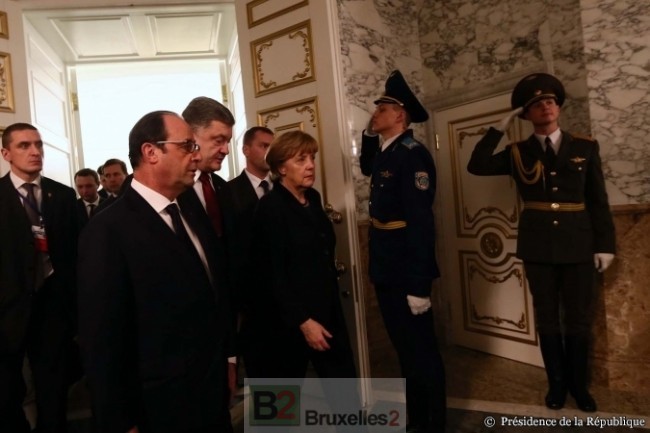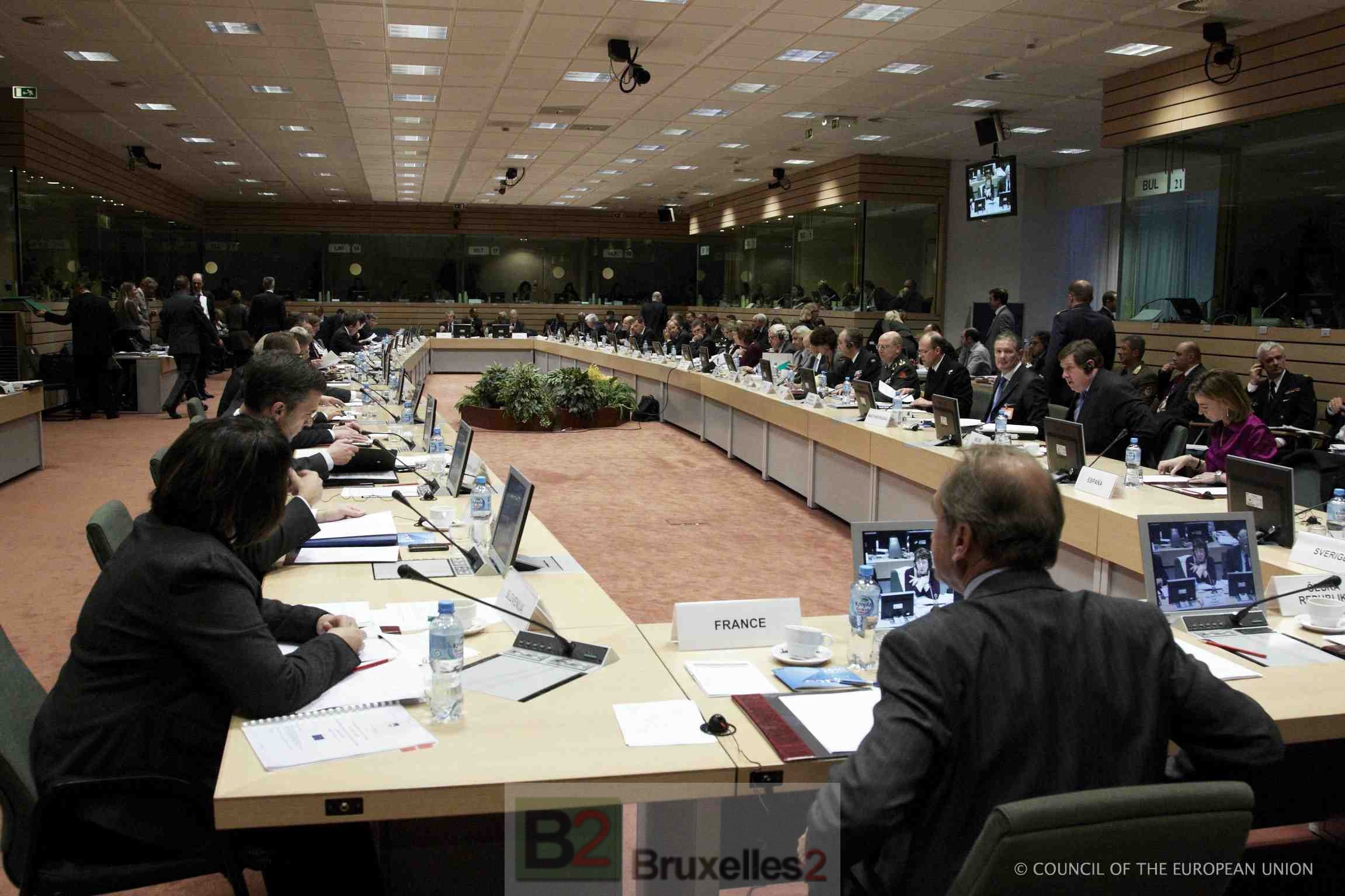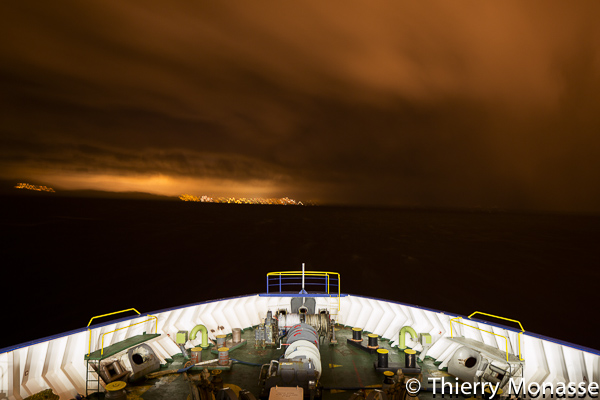Minsk Agreements: Why is the Franco-German couple more effective? Why not the EU?

(BRUSSELS2) The agreement obtained, in a snatch, in Minsk a few days ago (February 12) is undoubtedly not a "good agreement". And its durability remains fragile a few days later. Several questions have arisen in the face of this method of negotiation contesting its European character.
1° It was the Europeans (along with the Russians and Ukrainians) who negotiated this agreement. And it's quite fortunate that it was France and Germany, the Franco-German "tandem", which were in charge.
2° Some people regret that Europe - as an institution - was not involved in what is first and foremost a first draft of negotiations. It's not my feeling. The interest of Europe, it is not to know if it is Truc or Machin negotiated the agreement. It is to present the best vector capable of negotiating and winning an agreement. Moreover, it is the whole interest of the European Union to have a diplomacy with variable geometry (*). In this case, it was a question of having interlocutors capable of imposing themselves in a discussion on Putin and Poroshenko, the best negotiators they are.
3° The best vector in this case is the Franco-German couple. The alloy of one - military and nuclear power, and traditional ally of Moscow - and the other - economic power and the first European exporter to Russia - weigh more than any alloy. They alone represent more than a quarter of the European population and the center of gravity of diplomacy and the European economy. It was undoubtedly also the best guarantee to bring to the agreement, following what had been started in Normandy in June 2014, as confirmed by the French President, François Hollande: “ That France and Germany have chosen to engage with Europe to confirm this commitment, to be vigilant, throughout the implementation of this agreement is a guarantee for the Ukrainians and an even stronger involvement for Europe. »
4° Europe was not far away as such. On the one hand, institutionally, it is a stakeholder and actor in another equally important negotiation, on deliveries of Russian gas to Ukraine (and indirectly to Europe). On the other hand, it has a range of instruments that allow it to act and put pressure on partners: financial support for Ukraine, sanctions against Russia... Finally, it has personalities who can having direct or indirect relations with the managers in question. Jean-Claude Juncker's good relationship and understanding with Russian leaders is well known. An equivalent relationship is in the process of being established between the High Representative of the EU, Federica Mogherini and her Russian alter-ego, Sergei Lavrov.
The Franco-German tandem is gaining muscle
In the end, for the Franco-German couple it is also good news. And that's not bad for Europe. As François Hollande also recalled at the end of this summit. " Europe is strong when Germany and France are in a robust relationship, and take initiatives, and when France and Germany agree to assume their responsibilities, whether in the international field or in the economic field. It shows and it matters. With Me Merkel, we were in total solidarity. Far from weakening European unity, we have strengthened it. And it manifested itself (during this summit). All the voices that asserted themselves this evening welcomed the initiative, looked at the agreement as I described it, wished that the chance would be seized, being vigilant and questioning in the coming days »
We were able to take the initiative
What is interesting is the vision of the President of the French Republic on this agreement. The opportunity, finally, for the French and Germans, to find common initiatives and not just compromises under the pressure of disagreements. " My relations (with Angela Merkel) are always those in line with my convictions, frank, direct, cordial. We have always worked well. We have always found compromises, on Greece, the Banking Union, the stability mechanism. There, we moved on to another level of our responsibilities, we were able to take initiatives ».
A budding sympathy?
And to add: “France and Germany cannot simply be the evocation of the past, the Elysée treaty. (...) Beyond our two people, it is our two countries that found themselves there. I was sensitive to gestures of friendship that Me Merkel was able to make, when she came to Paris on January 11. She was one of the first to come forward to me, to say “I'll be there, whatever happens”. On other occasions, I told him “France will be there”. And there “we were together”.
(Nicolas Gros-Verheyde)
Read also:
The main elements of the new Minsk agreement. An armistice, not (yet) peace (shift)
- And on the Club/Pro):
The 3 conditions for delivering the Mistral (Fr. Holland). The cost of non-delivery
(*) Nb: if it was Libya or the Middle East, an Italian-British couple could perhaps be more judicious and able to negotiate, etc.


